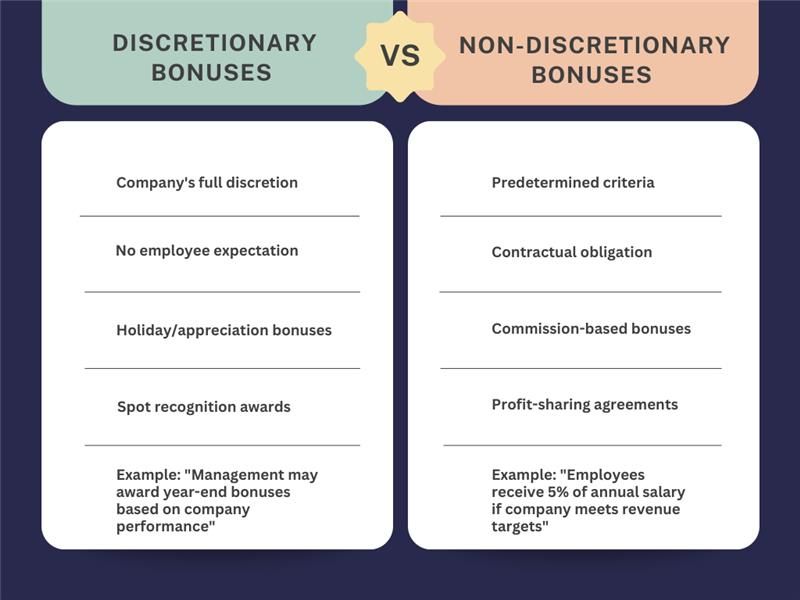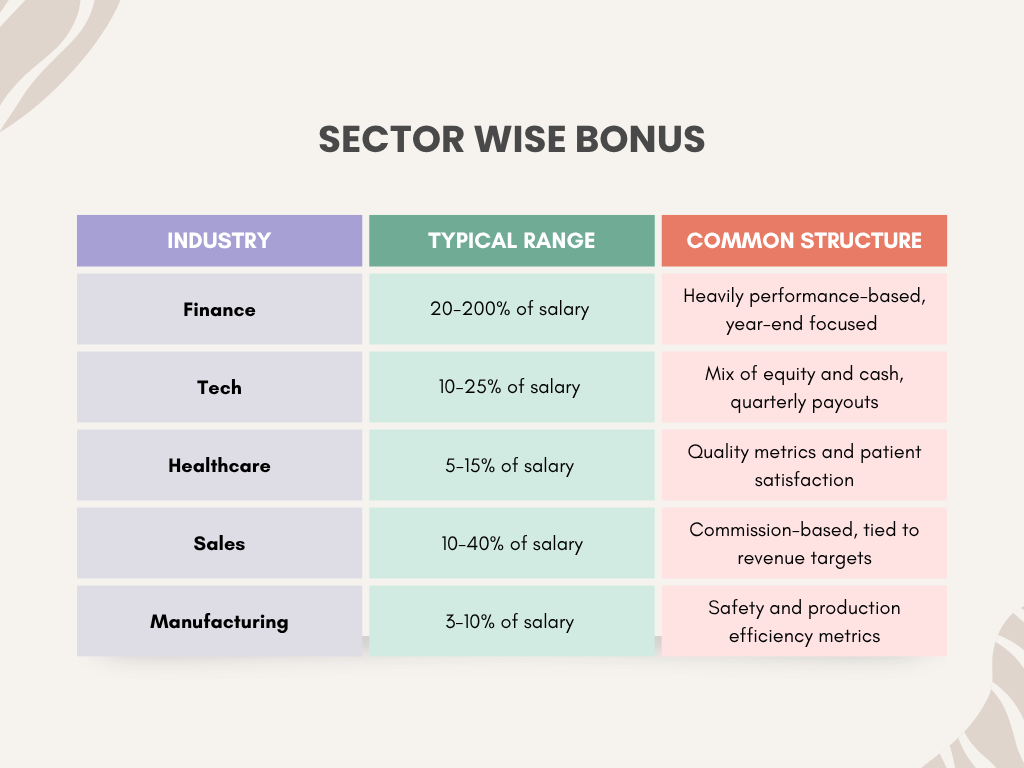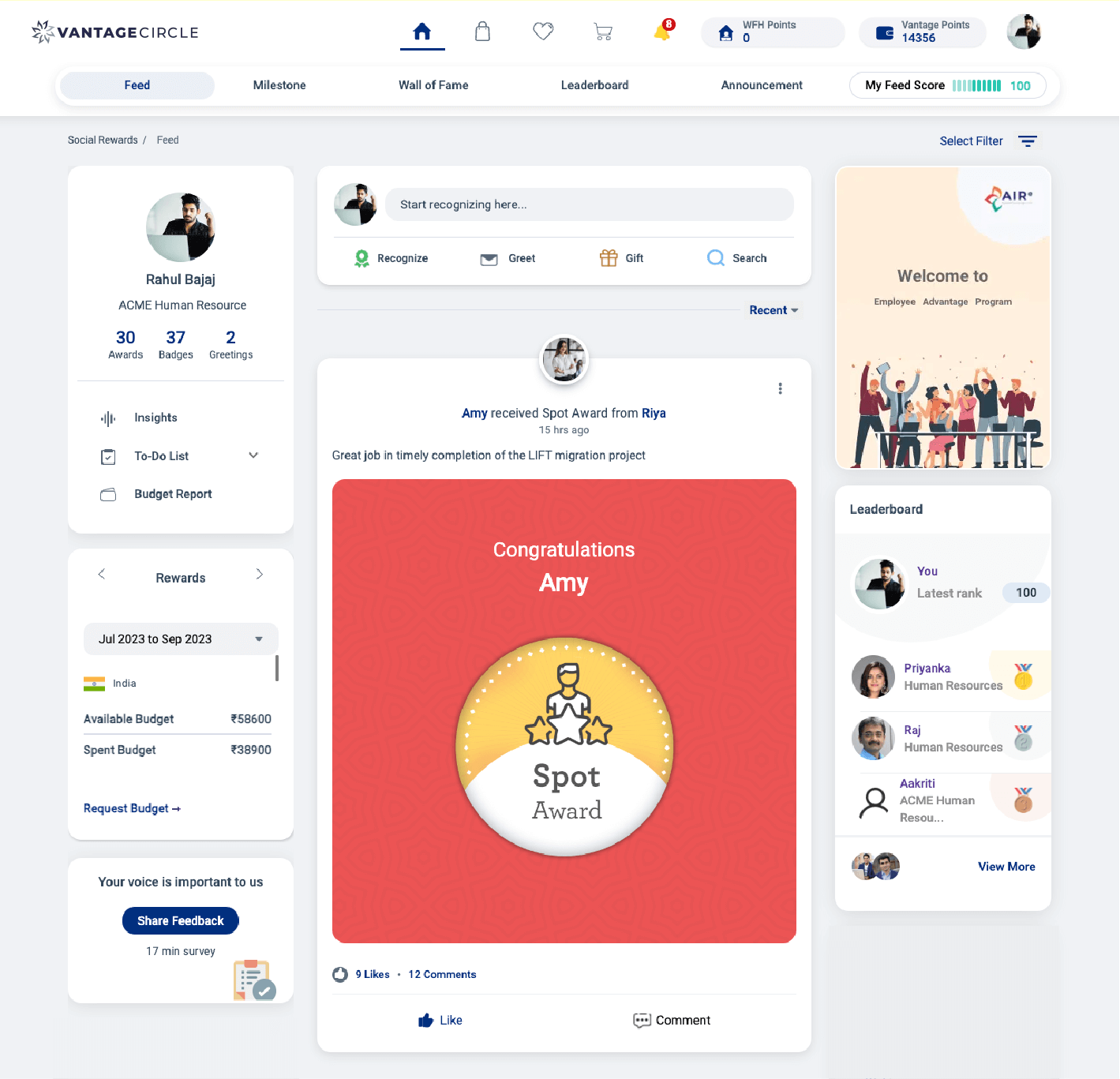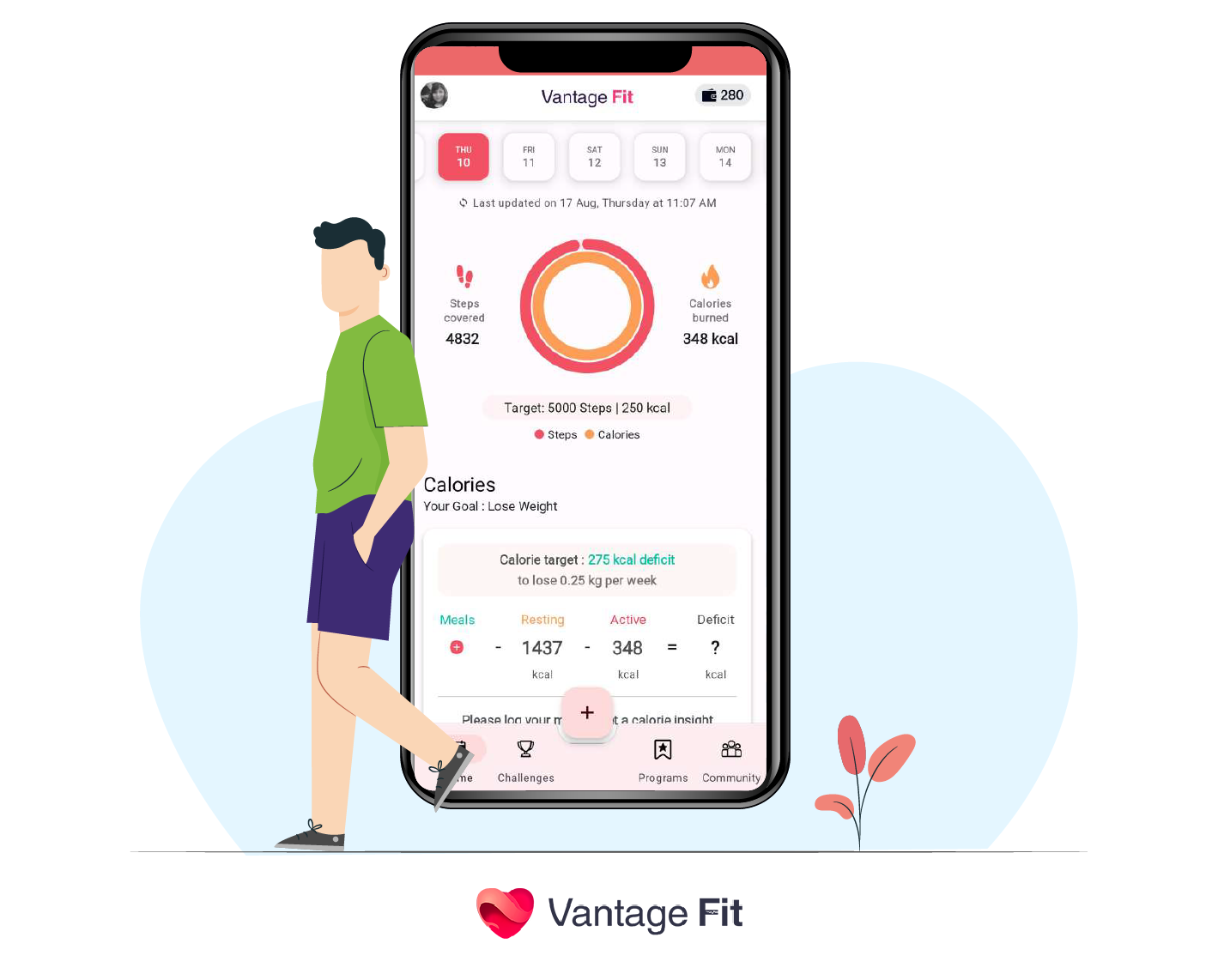Employee Bonus: Types, Benefits & Strategic Implementation

A Global Employee Recognition and Wellness Platform
Let's be honest - everyone loves getting a bonus. But here's the thing: an employee bonus isn't just about making people happy (though that's a nice side effect).
Smart companies use bonuses as a strategic tool. They drive performance, boost retention, and create a culture where people actually want to stick around.
The workplace has changed big time. Remote work, skill shortages, and employees who know their worth - it's a whole new game. A well-planned employee bonus system can be the difference between losing your best people and keeping them engaged.
Think about it. When was the last time you heard someone complain about getting rewarded for good work? Give it a thought.
While we will keep that discussion open, let's understand how bonuses can help.
Key Takeaways
- What is an Employee Bonus?
- Why Do Companies Offer Bonuses?
- Types of Employee Bonuses (With Examples)
- What are Discretionary vs. Non-Discretionary Bonuses
- How Are Bonuses Calculated?
- The Strategic Value of Bonuses in Talent Management
- Modern Trends: Personalized, ESG-linked, and Non-Monetary Bonuses
What Is an Employee Bonus?

An employee bonus is extra money you give to workers on top of their regular salary. It's not part of their base pay - it's a reward for hitting targets, excellent performance, or company milestones.
The whole point? Motivate people to do better work and show them their efforts matter.
Bonuses come in different flavors. Performance bonuses reward individual achievements. Profit-sharing bonuses give everyone a slice when the company does well. Retention bonuses keep key people from jumping ship.
Here's a reality check: 46% of workers say salary or bonus is their biggest motivator for staying. But that means 54% are driven by something else entirely. The smartest companies tap into both motivations with strategies that go beyond the paycheck.

Infographic showing bonus lifecycle
Different countries have their own bonus traditions, too. In India, companies give Diwali bonuses during the festival season. US companies often tie bonuses to 401(k) profit-sharing plans. UK firms love their Christmas bonuses.
These regional differences matter for search visibility. What you call a "festive bonus" in Bangalore might be a "holiday bonus" in Washington.
Why Do Companies Offer Bonuses?

Companies aren't just throwing money around for fun. There's solid business logic behind every bonus check.
-
Employee motivation is the biggest driver. When people know good work leads to extra cash, they push harder. It's simple psychology - reward behavior you want to see repeated.
-
Employee retention bonus purpose becomes clear when you look at the numbers. According to Gallup, replacing an individual employee can range from one-half to two times their annual salary, and that's considered a conservative estimate. A retention bonus that costs 20% of someone's salary suddenly looks like a bargain.
Deloitte research shows companies with strong incentive programs see 31% lower turnover. That's not just about money - it's about feeling valued.
- Productivity incentives align personal goals with company goals. When your bonus depends on hitting quarterly targets, you care about those targets. It turns company success into personal success.
The psychology runs deeper than you'd think. Reward anticipation actually motivates people more than the reward itself. Just knowing a bonus is possible changes behavior.
Our AIRe report found that 62% of companies rely on monetary value to drive recognition effectiveness indicating the high value of bonuses and its impact on productivity.
- Reciprocity kicks in too. Give someone an unexpected bonus and they'll work harder to "pay it back" through better performance.
But watch out for expectation creep. Once bonuses become routine, people expect them. Miss a bonus cycle and motivation can actually drop below baseline levels.
Types of Employee Bonuses (With Examples)

Not all bonuses are created equal. Different situations call for different approaches.
Performance Bonuses
These reward people for hitting specific targets. Sales teams get them for exceeding quotas. Project managers earn them to finish on time and under budget.
- Tie performance bonuses to the OKR system. Hit your objectives and key results? You get rewarded. Miss them? Better luck next quarter.
Spot Bonuses
Immediate rewards for exceptional work. Someone saves a client relationship? Spot bonus. Team members go above and beyond on a project? Another spot bonus.
- Microsoft handed out surprise cash bonuses to employees. The one-time awards were worth up to 25% of annual bonus amounts. (Source)
Sign-On Bonuses
Used to attract top talent in competitive markets. Tech companies love these.
- Amazon structures sign-on bonuses over multiple years. You might get $50,000 total, but it's paid out over 24 months. Leave early? You pay it back. (Source)
Referral Bonuses
Reward employees for bringing in good people. Your powerful network becomes a good recruiting tool.
- You can pay $2,000-$4,000 for successful referrals. Your employees will probably know other great people fit for the vacant job.
Retention Bonuses
Keep key people from leaving, especially during uncertain times or after acquisitions.
- Use retention bonuses heavily to keep hold of your prized asset. When someone gets a competing offer, a retention bonus often keeps them in place.
Profit-Sharing Bonuses
Everyone wins when the company wins. Usually paid annually based on company performance.
- You earned a profit for the year? Share it with all employees. It’s a good bonus that helps boost morale.
Holiday Bonuses
Traditional end-of-year rewards. Common in many cultures and industries.
- Most Wall Street firms still do year-end bonuses. It's expected, not optional.
Non-Cash Bonuses
Physical rewards instead of money. Gift cards, electronics, travel vouchers, or experiences.
- Hand out luxury trips to top performers. The bragging rights matter as much as the vacation.
Non-Monetary Bonuses: The 2025 Trend
Money isn't everything anymore. People want growth, flexibility, and well-being support.
-
Skill development stipends let employees choose their own learning. Give someone $1,000 for courses and they'll pick what matters to their career.
-
Well-being perks address burnout and stress. Extra PTO days, mental health apps, or gym memberships show you care about the whole person.
-
Flexibility bonuses might include work-from-anywhere weeks or flexible schedule options. These cost the company little but mean a lot to employees.
The key? These bonuses feel personal and show you understand what people actually value in 2025.
Discretionary vs. Non-Discretionary Bonuses

Here's where things get legally interesting. Not all bonuses are treated the same way under employment law.
-
Discretionary bonuses are completely up to the company. No promises, no guarantees. Management decides who gets what, when, and how much.
-
Non-discretionary bonuses are different. These are promised in advance, usually tied to specific performance metrics or contractual bonuses outlined in employment agreements.
The difference matters for bonus eligibility and legal compliance.

Legal Implications
-
In the USA, FLSA treats these differently for overtime calculations. Non-discretionary bonuses must be included when calculating overtime pay rates. Discretionary ones don't.
-
Indian Labour Law under the Payment of Bonus Act makes annual bonuses mandatory for certain employees. Companies can't just skip them - they're legally required.
-
Employee handbooks usually spell this out clearly. Smart companies define bonus eligibility upfront to avoid confusion later.
How Are Bonuses Calculated?
Bonus math isn't rocket science, but it varies wildly depending on what you're trying to achieve.
-
Performance Bonus Formula: Base Salary × Bonus Percentage × Performance Score = Bonus Amount
-
Example: $60,000 salary × 15% target bonus × 120% performance score = $10,800 bonus
-
Flat-Rate Payouts are simpler. Everyone at the same level gets the same amount. Hit your targets? Here's $5,000. Miss them? Maybe next time.
-
Percentage of Salary is the most common approach. Junior employees might get 5-10% of their annual salary. Senior managers could see 25-50% or more.
The calculation also depends on individual vs. team vs. company performance. Some companies split it three ways - 50% individual performance, 30% team results, 20% company success.
Industry Variations
Different sectors play by different rules:

(Source)
Finance bonuses can be massive but unpredictable. Tech bonuses are more consistent but often include stock options. Healthcare focuses on patient outcomes alongside financial performance.
The Strategic Value of Bonuses in Talent Management

Smart companies don't just hand out bonuses randomly. They use them as strategic weapons in the war for talent.
1. Performance Boost That Lasts
Well-designed bonuses create a performance cycle that feeds itself. People work harder when they know extra effort pays off. That higher performance becomes the new normal.
The trick is connecting bonuses to behaviors you actually want. Reward teamwork, get more collaboration. Reward innovation, get more creative thinking.
2. Morale Investment with ROI
Happy employees are productive employees. But here's what most companies miss - bonuses improve morale for everyone, not just the people who get them.
When Sarah sees her colleague get rewarded for great work, it tells her the company notices and values excellence. That's morale booster for the whole team.
3. Retention Strategy That Works
Replacing good people costs serious money. A well-timed retention bonus can save you from losing someone who'd cost 150% of their salary to replace.
The math is simple: $10,000 retention bonus vs. $90,000 replacement cost? Easy choice.

4. Employer Branding Impact
Your bonus reputation spreads fast. Glassdoor reviews mention compensation constantly. "Great bonus structure" or "bonuses are rare" - both comments shape your employer brand.
Companies with strong bonus programs score higher on employer rating sites. That translates to better job applications and easier recruiting.
So here's the deal with Netflix and bonuses:
Netflix doesn't do bonuses. At all. No annual bonuses, no performance bonuses, nothing.
Why? Their thinking is straightforward:
They figure if they're already paying you really well from the get-go, why would a bonus suddenly make you work harder? It's like saying "We already think you're worth $100k, but here's an extra $5k to actually try."
Their whole approach is different:
Instead of dangling carrots with bonuses, they just pay top dollar upfront. Think of it like this - would you rather get a decent salary and hope for a bonus at the end of the year, or just get a great salary from day one?
What they focus on instead:
-
Paying what you're actually worth in the market
-
Being flexible with how they structure your pay
-
Keeping things simple - no complicated bonus formulas or waiting games
The Netflix philosophy in plain English:
"If we're not paying you enough that you need a bonus to feel motivated, then we're probably not paying you enough, period."
It's basically their way of saying they'd rather just cut to the chase and pay well consistently, rather than play the whole bonus game that most companies do.
(Source)
Modern Trends: Personalized, ESG-linked, and Non-Monetary Bonuses

Bonus programs in 2025 look nothing like the generic cash handouts of the past. Companies are getting creative.
1. Personalized Bonus Experiences
One-size-fits-all is dead. Some people want cash, others prefer time off, and some want career development opportunities.
- Smart companies now offer bonus menus. Hit your targets and choose your reward - extra PTO, professional development budget, or traditional cash.
2. Peer-to-Peer Recognition
Managers don't see everything. Coworkers do. Peer-to-peer bonus programs let employees nominate each other for spot rewards.
- Some system allows anyone to give "props" with small monetary rewards attached. It creates a culture where good work gets noticed immediately.

(Source: Vantage Recognition)
3. Gamified Bonus Systems
Points, levels, and achievements aren't just for video games anymore. Companies are gamifying bonuses to make work more engaging.
- Salesforce uses badges and leaderboards tied to bonus eligibility. Hit certain milestones, unlock bonus opportunities. It turns performance into a game people want to win. (Source)
Recommended Resource: Gamification in Employee Recognition: How it helps?
4. Wellness-Focused Rewards
Mental health and work-life balance matter more than ever. Wellness stipends are becoming standard bonus offerings.
- Companies offer meditation app subscriptions, fitness memberships, or mental health days as bonus options. It shows they care about the whole person.

(Source: Vantage Fit)
5. ESG-Linked Bonus Programs
Environmental, Social, and Governance metrics are entering bonus calculations. It's not just about profit anymore.
-
Sustainability Bonuses reward employees for reducing carbon footprint, waste reduction, or green innovation. Patagonia ties executive bonuses directly to environmental impact metrics.
-
DEI Performance Bonuses reward managers for improving diversity hiring, mentorship programs, or inclusive leadership practices. Some companies make 20% of manager bonuses dependent on diversity goals.
-
CSR Achievement Rewards recognize employees who drive community involvement, volunteer leadership, or social impact initiatives.
The trend is clear - bonuses are becoming tools for driving values-based behavior, not just financial performance.
Conclusion
Employee bonuses aren't just nice-to-haves anymore. They're strategic tools that shape behavior, drive performance, and build the culture you want.
The companies winning the talent game understand this. They're not just throwing money around - they're investing in systems that align individual success with business goals.
Whether it's a simple performance bonus or a complex ESG-linked program, the principle stays the same: reward the behavior you want to see more of.
So, what's your move? Start small if you need to. Even a basic spot bonus program can make a difference. The key is getting started and learning what works for your team.



















